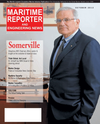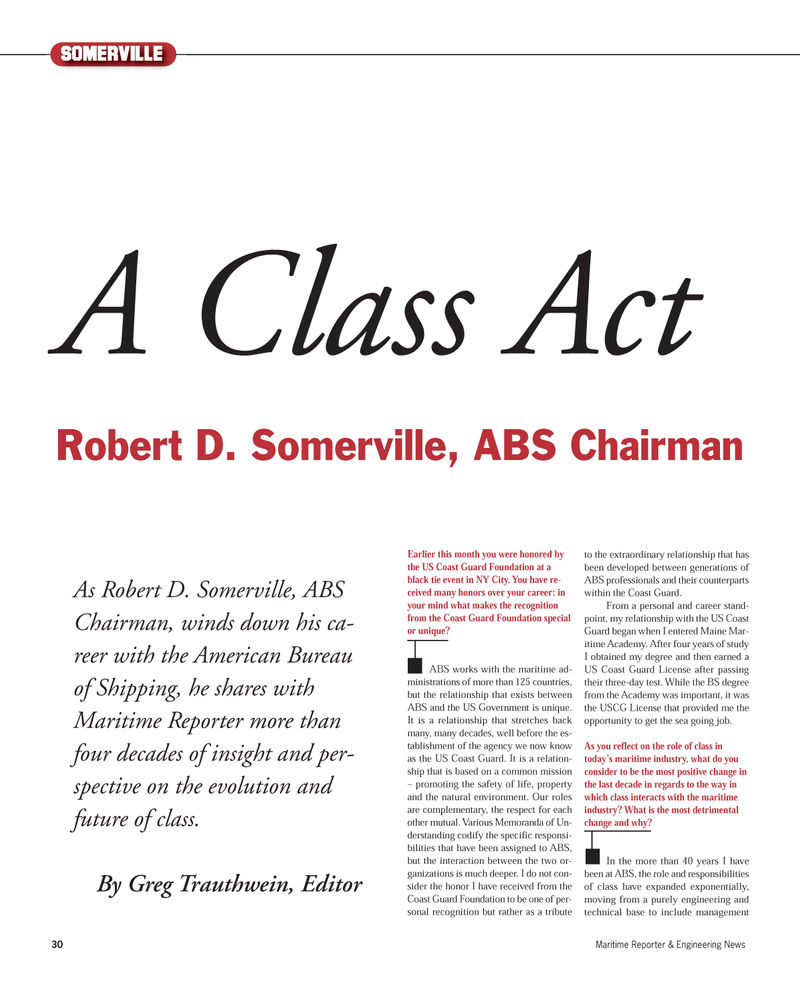
Page 30: of Maritime Reporter Magazine (October 2012)
Marine Design & Construction
Read this page in Pdf, Flash or Html5 edition of October 2012 Maritime Reporter Magazine
30Maritime Reporter & Engineering News somervilleEarlier this month you were honored by the US Coast Guard Foundation at a black tie event in NY City. You have re- ceived many honors over your career: in your mind what makes the recognition from the Coast Guard Foundation special or unique?ABS works with the maritime ad- ministrations of more than 125 countries,but the relationship that exists between ABS and the US Government is unique. It is a relationship that stretches backmany, many decades, well before the es- tablishment of the agency we now know as the US Coast Guard. It is a relation-ship that is based on a common mission? promoting the safety of life, propertyand the natural environment. Our roles are complementary, the respect for each other mutual. Various Memoranda of Un- derstanding codify the specific responsi- bilities that have been assigned to ABS, but the interaction between the two or- ganizations is much deeper. I do not con- sider the honor I have received from the Coast Guard Foundation to be one of per- sonal recognition but rather as a tribute to the extraordinary relationship that has been developed between generations of ABS professionals and their counterpartswithin the Coast Guard. From a personal and career stand-point, my relationship with the US CoastGuard began when I entered Maine Mar- itime Academy. After four years of study I obtained my degree and then earned a US Coast Guard License after passingtheir three-day test. While the BS degree from the Academy was important, it was the USCG License that provided me the opportunity to get the sea going job. As you reflect on the role of class in today?s maritime industry, what do you consider to be the most positive change in the last decade in regards to the way in which class interacts with the maritimeindustry? What is the most detrimental change and why? In the more than 40 years I have been at ABS, the role and responsibilities of class have expanded exponentially, moving from a purely engineering and technical base to include managementAs Robert D. Somerville, ABS Chairman, winds down his ca- reer with the American Bureau of Shipping, he shares with Maritime Reporter more than four decades of insight and per-spective on the evolution and future of class. By Greg Trauthwein, Editor A Class Act Robert D. Somerville, ABS ChairmanMR#10 (26-33):MR Template 9/28/2012 1:23 PM Page 30

 29
29

 31
31
